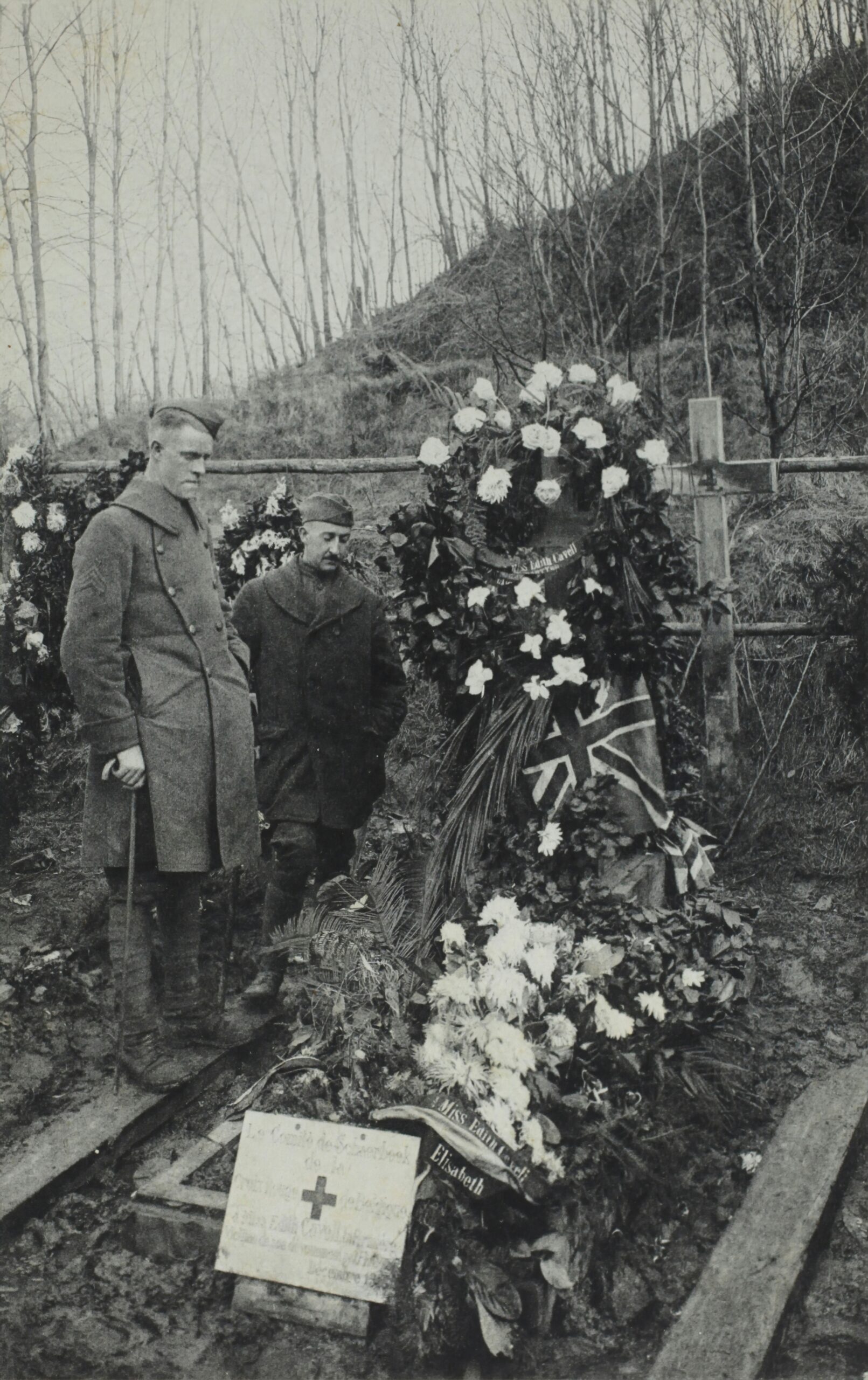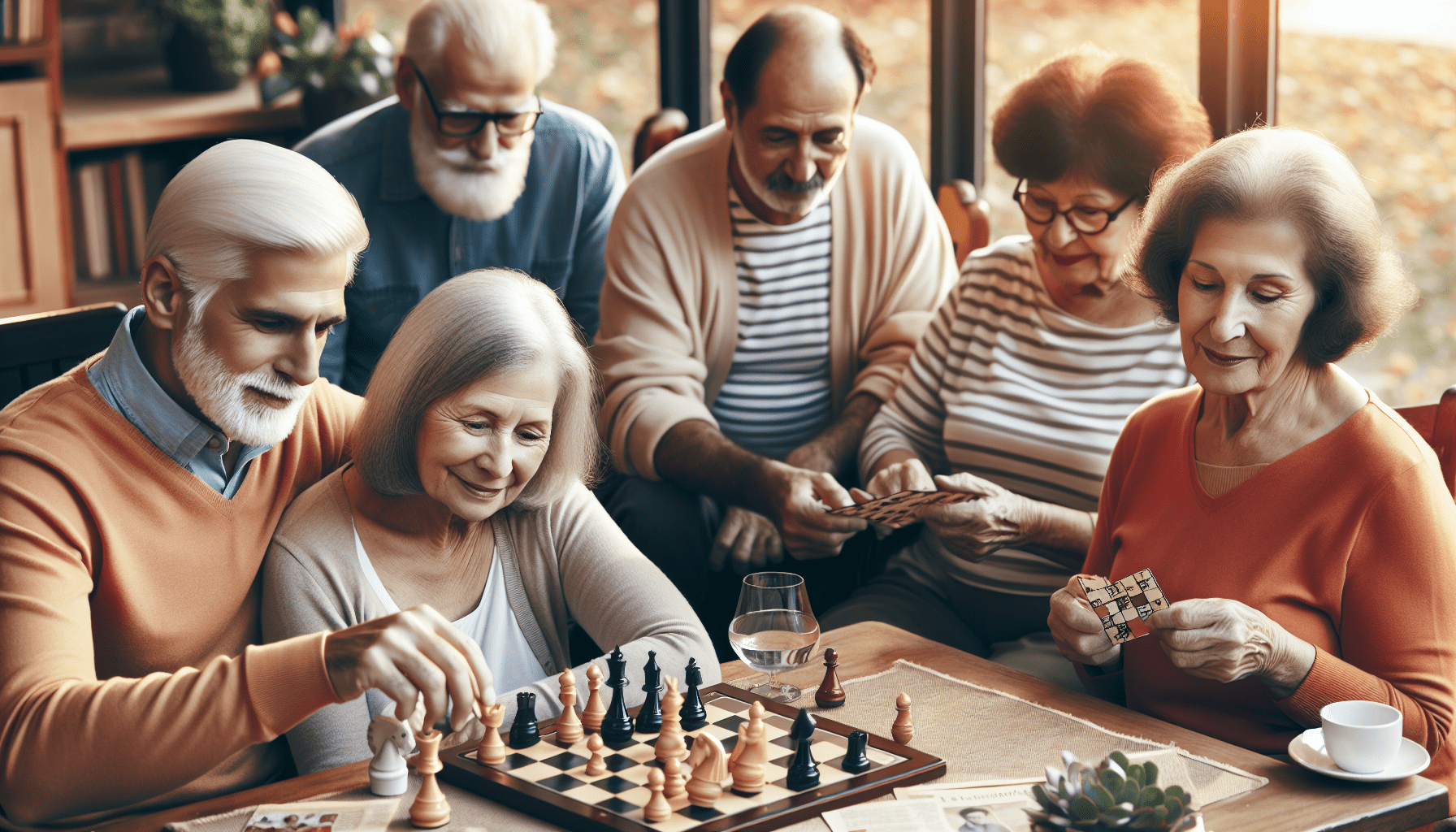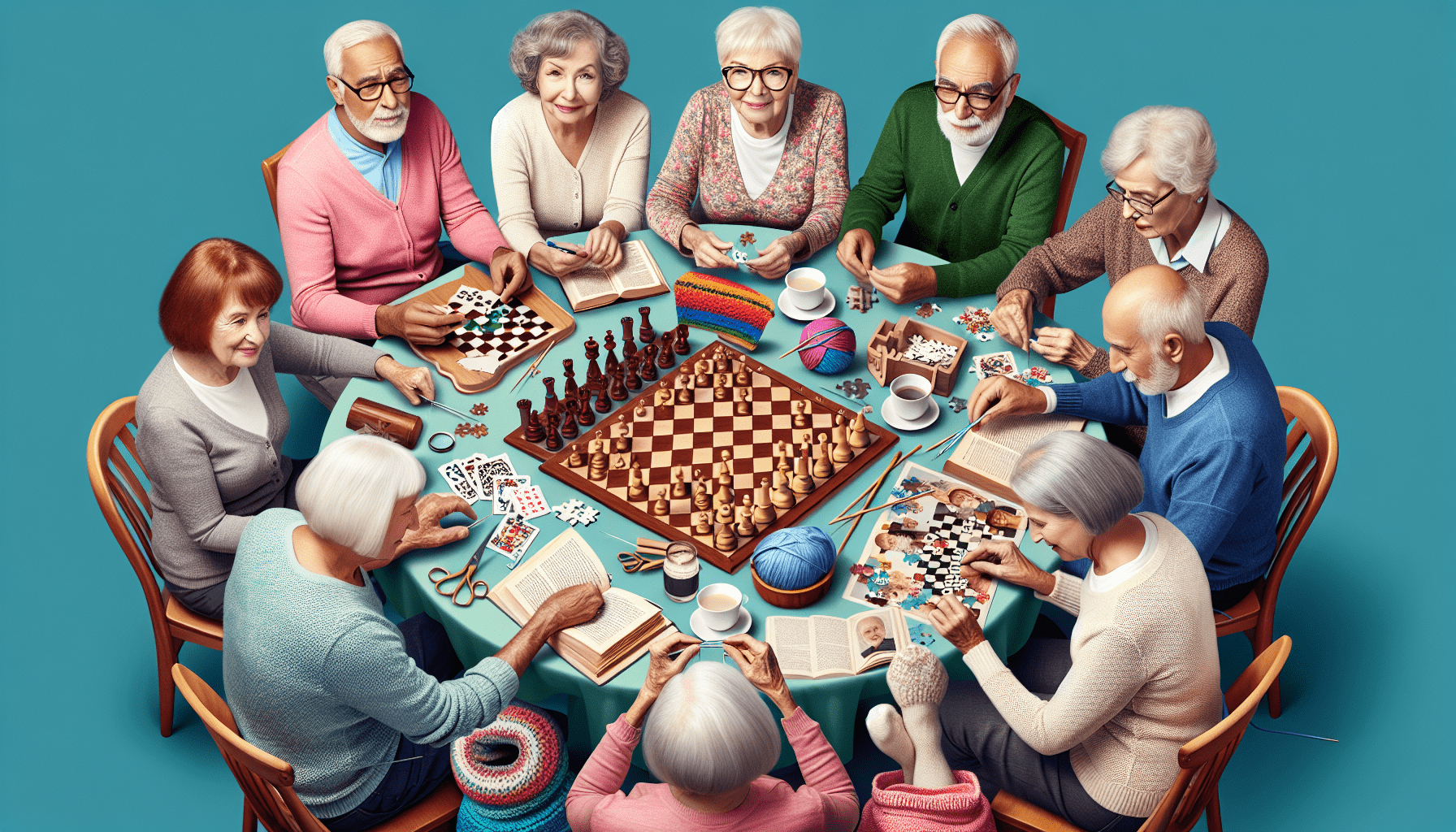Losing your memory as you age can be a troubling experience, but did you know that social interaction could potentially play a role in mitigating this? In this article, we explore the impact of social interaction on age-related memory loss. Instead of diving into general background information, we'll be taking a deep dive into the specific subject at hand. So, grab a cup of tea, get cozy, and let's explore the fascinating link between social interaction and memory retention in our golden years. Are you ready to uncover the secrets of maintaining a sharp memory? Let's get started!
Understanding Age-Related Memory Loss
Age-related memory loss is a common phenomenon that many people experience as they get older. It is characterized by a decline in cognitive function and a decrease in the ability to remember things. While it is normal to forget things from time to time, age-related memory loss is more significant and can impact daily life. It often involves forgetting names, misplacing items, or having difficulty recalling recent events. It is important to understand the characteristics and causes of age-related memory loss to effectively address these issues.
Characteristics of age-related memory loss
Age-related memory loss is often characterized by forgetfulness, particularly in relation to recent events or information. It can also involve difficulty in learning new things or retaining new information. Common examples of age-related memory loss include forgetting where you parked your car, having trouble remembering people's names, or frequently misplacing your belongings. These memory lapses are usually mild and do not significantly affect overall cognitive function.
Common misconceptions about memory loss
There are often misconceptions about memory loss and its relationship to age. Many people assume that forgetfulness is a natural part of aging and that there is nothing that can be done to prevent or improve it. However, age-related memory loss is not inevitable, and there are strategies and interventions that can help improve memory and cognitive function. It is important to debunk these misconceptions and highlight the potential for improvement in memory and overall brain health.
Mechanisms and causes of age-related memory loss
Age-related memory loss is thought to result from a combination of factors, including changes in the brain's structure and function, decreased blood flow to the brain, and the accumulation of brain plaques and tangles. These changes can affect the communication between brain cells and interfere with memory processes. Additionally, other conditions such as stress, sleep deprivation, and certain medications can contribute to memory loss in older adults. Understanding these mechanisms and causes is essential in developing effective strategies to mitigate age-related memory loss.
Role and Importance of Social Interaction
Social interaction plays a crucial role in human life, regardless of age. It is through social interactions that we form relationships, share experiences, and maintain a sense of belonging. For older adults, social interaction becomes even more critical as it has a significant impact on their mental health and overall well-being.
Significance of social interaction in human life
Social interaction provides opportunities for individuals to engage with others, express emotions, and share experiences. It helps to foster a sense of belonging and reduces feelings of loneliness and isolation. Human beings are inherently social creatures, and maintaining social connections is essential for psychological and emotional well-being.
Impact on mental health
Social interaction has a profound impact on mental health, especially for older adults. It can help alleviate symptoms of depression and anxiety, reduce stress levels, and improve overall psychological well-being. Regular social interactions provide a sense of purpose and can offer support during difficult times. By engaging in conversations, activities, and shared experiences, older adults can maintain their cognitive abilities and stay mentally sharp.
Relation to overall well-being
Social interaction is closely linked to overall well-being in older adults. It not only promotes mental health but also has positive effects on physical health. Regular social engagement can reduce the risk of chronic diseases, such as heart disease and hypertension. It also helps older adults stay active, both physically and mentally, and can contribute to a higher quality of life.
Connection between Social Interaction and Cognitive Functions
The relationship between social interaction and cognitive functions is significant, particularly in the context of memory and cognitive decline. Engaging in social activities can have a positive impact on cognitive abilities and support brain health in older adults.
Effect on cognitive speed
Social interaction has been shown to enhance cognitive speed in older adults. Engaging in conversations, discussions, and challenging activities stimulates the brain and keeps cognitive functions active. It requires attention, memory, and problem-solving, all of which contribute to maintaining cognitive speed and agility.
Impact on problem-solving capabilities
Social interaction provides opportunities for problem-solving and critical thinking. Engaging in group discussions or participating in shared activities can stimulate the brain and keep problem-solving capabilities sharp. These activities require individuals to think creatively, consider different perspectives, and come up with solutions. Regular social interaction helps older adults exercise their problem-solving skills and maintain cognitive abilities.
Association with creative thinking
Social interaction can also enhance creative thinking in older adults. Engaging in conversations and activities that involve thinking outside the box stimulates the brain's creative processes. By sharing ideas, exploring different perspectives, and learning from others, older adults can expand their thinking and nurture their creativity.
Effects of Social Isolation on Cognitive Health
While social interaction has numerous benefits, the absence of it, often referred to as social isolation, can have detrimental effects on cognitive health in older adults.
Impact on one's mental health
Social isolation has been linked to an increased risk of mental health issues in older adults. It can lead to feelings of loneliness, depression, and anxiety, which can, in turn, impact cognitive functions. Chronic loneliness has been associated with higher rates of cognitive decline, including age-related memory loss. It is crucial to recognize the detrimental effects of social isolation on mental health and take steps to prevent and address it.
Role in the occurrence of cognitive decline
Social isolation can contribute to the occurrence of cognitive decline and age-related memory loss. The lack of social stimulation and engagement can lead to a decrease in cognitive activities, which results in the loss of neural connections and functioning. When individuals are socially isolated, their brains are not adequately challenged, and this can accelerate cognitive decline and memory loss.
Link to diseases like Alzheimer's
Social isolation has also been identified as a risk factor for diseases like Alzheimer's. Studies have shown that individuals with limited social interactions are at higher risk of developing dementia and other neurodegenerative conditions. The exact mechanisms behind this association are not fully understood, but it is believed that social interaction plays a role in maintaining brain health and protecting against the development of neurological disorders.

Research on Social Interaction and Memory Loss
Researchers have conducted numerous studies to explore the relationship between social interaction and memory loss in older adults. These studies have provided valuable insights into the effects of social interaction on cognitive health and memory performance.
Overview of recent studies
Recent studies have consistently highlighted the positive impact of social interaction on memory and cognitive abilities in older adults. These studies have examined the effects of various forms of social engagement, such as group activities, volunteering, and maintaining close relationships. They have utilized various research methods, including surveys, interviews, and cognitive tests, to measure the relationship between social interaction and memory performance.
Key findings and implications
The findings of these studies suggest that regular social interaction can improve memory and cognitive function in older adults. Engaging in social activities, whether it be through meaningful conversations, participating in group exercises, or joining clubs or community organizations, can help maintain cognitive abilities and reduce the risk of age-related memory loss. The positive effects of social interaction on memory performance are believed to be related to the stimulation of the brain, the maintenance of neural connections, and the promotion of overall brain health.
Gap areas in current research
While there is a growing body of research on social interaction and memory loss, there are still some gaps that need to be addressed. For example, further investigation is needed to understand the optimal frequency and duration of social interaction to maximize its beneficial effects on memory performance. Additionally, more research could focus on specific populations, such as individuals with neurodegenerative diseases, to explore the potential therapeutic benefits of social interaction in these cases. Further research is essential to deepen our understanding of how social interaction influences memory and cognitive health.
Influence of Social Interaction on Memory Performance
Social interaction has been found to have a significant influence on memory performance in older adults. Engaging in social activities can enhance various aspects of memory, including recall, recognition, and consolidation.
Enhancement of memory recall
Regular social interaction has been shown to improve memory recall in older adults. Engaging in conversations, storytelling, and sharing experiences can activate retrieval processes in the brain and enhance memory recall. By regularly exercising the brain through social interaction, older adults can improve their ability to remember and retrieve information.
Improvement in memory recognition
Social interaction has also been found to enhance memory recognition. Interacting with others, especially in familiar social environments, can activate memory networks in the brain and facilitate the recognition of familiar faces, places, and events. This improved memory recognition can contribute to a sense of familiarity and belonging, which is important for overall well-being.
Role in memory consolidation
Memory consolidation refers to the process of transferring information from short-term memory to long-term memory. Social interaction has been found to support memory consolidation by providing opportunities for repetition, rehearsal, and encoding of information. Through engaging in conversations and sharing experiences, older adults can reinforce their memory of events and enhance their ability to retain information over time.

Therapeutic Benefits of Social Interaction on Memory Loss
Social interaction has therapeutic benefits for individuals experiencing memory loss, including those with age-related memory loss and neurodegenerative diseases. It can be effectively incorporated into treatment plans to improve cognitive function and quality of life.
Utilization of social interaction in treatment plans
Healthcare professionals and caregivers can utilize social interaction as a therapeutic intervention for individuals with memory loss. Group activities, social engagement programs, and support groups can provide opportunities for individuals to interact with others, foster a sense of connection, and stimulate cognitive abilities. By incorporating social interaction into treatment plans, healthcare professionals can enhance memory performance and improve overall well-being.
Success stories and case studies
Several success stories and case studies have demonstrated the positive impact of social interaction on memory loss. Individuals who have actively engaged in social activities, maintained relationships, and participated in group exercises have reported improvements in memory and cognitive function. These success stories highlight the potential of social interaction as a non-pharmacological approach to managing memory loss and promoting brain health.
The future of social interaction in treating memory loss
As the field of neuroscience continues to advance, there is growing recognition of the therapeutic potential of social interaction in treating memory loss. Integrating social interaction into memory clinics, rehabilitation centers, and long-term care facilities is becoming more commonplace. The future holds promising possibilities for using social interaction as a key component of memory loss treatment plans, with the potential for improving outcomes and enhancing quality of life for individuals experiencing memory loss.
Limitations and Challenges
While social interaction has many benefits, there are several limitations and challenges that need to be considered, especially when addressing age-related memory loss in older adults.
Reality of social exclusion in older age
One challenge when promoting social interaction is the reality of social exclusion that many older adults face. Factors such as physical health limitations, geographic location, and loss of friends and loved ones can contribute to social isolation. It is crucial to address these barriers and provide support to older adults to overcome social exclusion and facilitate meaningful social interactions.
Challenges in facilitating social interaction for the elderly
Facilitating social interaction for older adults can present several challenges. Healthcare professionals and caregivers need to consider the individual needs and preferences of older adults when designing social engagement programs. Some older adults may have mobility issues or may prefer one-on-one interactions instead of group activities. Flexibility and a person-centered approach are essential to ensure that social interaction is tailored to the unique circumstances of each individual.
Dealing with individual personality differences and preferences
Another challenge in promoting social interaction is dealing with individual personality differences and preferences. Some individuals may be introverted or have specific preferences regarding social activities. It is important to respect these differences and find ways to engage individuals in social interaction that align with their preferences. Offering a variety of social activities and providing choices can help individuals find ways to connect with others that are comfortable and enjoyable for them.

Strategies to Increase Social Interaction in the Elderly
There are various strategies that can be utilized to increase social interaction in the elderly population, promoting cognitive health and overall well-being.
Importance of family and community involvement
Family and community involvement play a vital role in increasing social interaction for older adults. Encouraging regular visits, organizing family gatherings, and involving them in community events can help older adults stay connected and engaged. Creating opportunities for intergenerational interactions can also be beneficial, fostering meaningful connections between different age groups.
Role of technology in increasing social interaction
Technology can be a powerful tool in increasing social interaction for older adults. Platforms such as social media, video conferencing, and online communities provide opportunities for older adults to connect with others, regardless of physical location. Technology can bridge the gap between individuals and facilitate meaningful social interactions, especially for older adults who may be unable to leave their homes or have limited mobility.
Creating conducive environments for social interaction in care facilities
Care facilities and senior living communities can create environments that promote social interaction among residents. Designing communal spaces, organizing group activities, and facilitating social clubs and events can encourage older adults to connect with others and participate in social interaction. Creating a supportive and inclusive community environment is essential in fostering social engagement and combatting social isolation.
Future Prospects and Predictions
The future of addressing age-related memory loss through social interaction looks promising, with anticipated advancements in treating and preventing cognitive decline.
Anticipated advancements in treating age-related memory loss
Advancements in neuroscience and medical research hold the promise of developing new interventions and treatments for age-related memory loss. As our understanding of the brain and memory processes continues to expand, targeted therapies and interventions may become available to slow down or prevent cognitive decline in older adults. Social interaction is likely to play a crucial role in combination with these advancements, enhancing treatment outcomes and improving memory performance.
The role of technological and medical advances
Technological and medical advances are expected to play a significant role in promoting social interaction and addressing age-related memory loss. Assistive technologies, virtual reality, and personalized medicine are areas that hold promise in enhancing social engagement and improving cognitive function. These advancements can provide innovative solutions to overcome barriers and facilitate social interaction for older adults, leading to improved memory performance and overall well-being.
Trends in societal attitudes towards age-related memory loss
Societal attitudes towards age-related memory loss are shifting, with a greater recognition of the impact of social interaction on cognitive health. There is increasing awareness of the importance of social engagement in promoting brain health and addressing memory loss. This shift in attitudes is likely to promote further research, support the development of intervention programs, and foster a more inclusive and supportive environment for older adults experiencing memory loss.
In conclusion, social interaction has a significant impact on age-related memory loss. Regular social engagement can improve memory performance, maintain cognitive function, and support overall well-being in older adults. By recognizing the importance of social interaction, addressing barriers to social engagement, and leveraging advancements in technology and medical research, we can work towards enhancing memory health and quality of life for older adults experiencing age-related memory loss.


